7 Mistakes You’re Making When Washing Your Produce

Are you washing your produce properly? “Federal health officials estimate that nearly 48 million people are sickened by food contaminated with harmful germs each year, and some of the causes might surprise you,” says the FDA. “Although most people know animal products must be handled carefully to prevent illness, produce, too, can be the culprit in outbreaks of foodborne illness. In recent years, the United States has had several large outbreaks of illness caused by contaminated fruits and vegetables—including spinach, cantaloupe, tomatoes, and lettuce.” Proper cleaning is key to preventing food-bourne illness—here are 7 mistakes to avoid when washing your produce.
RELATED: If You’re Over 65, Never Do This With Your Produce.
1
Not Cleaning Your Produce
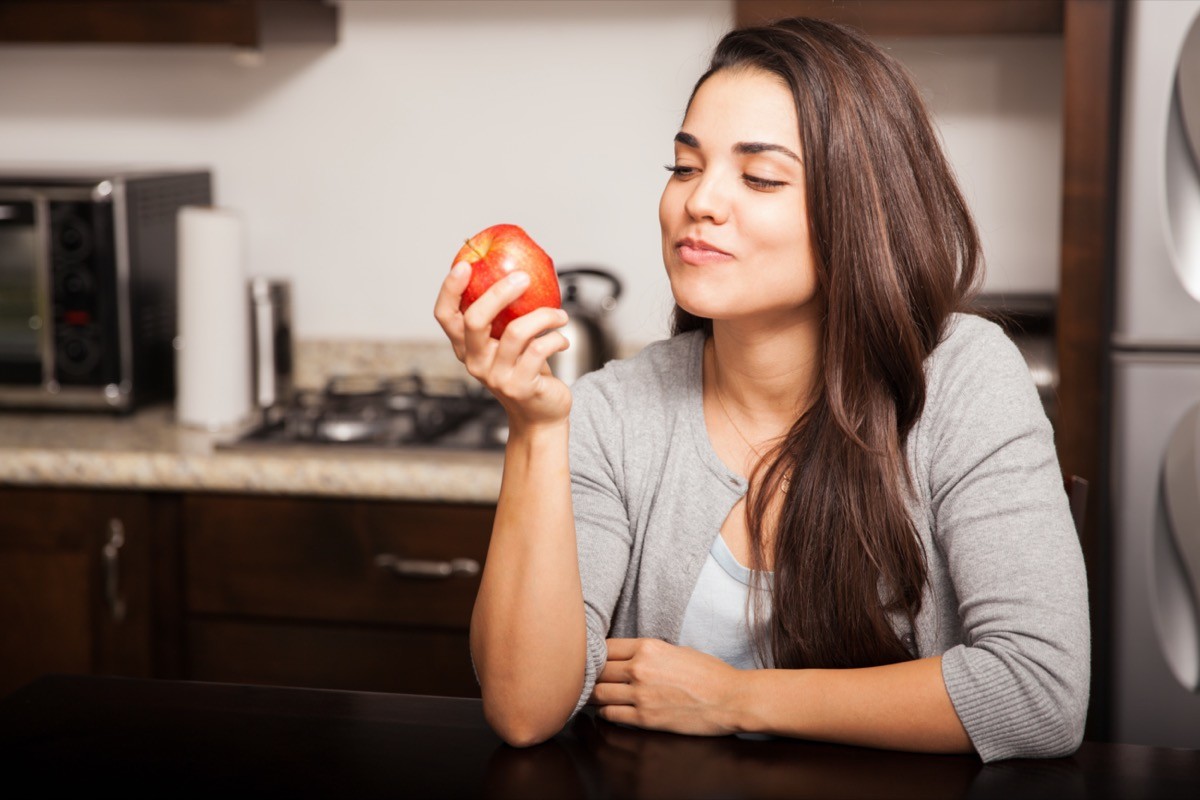
Even the cleanest, shiniest apple in the store is probably teeming with pathogens, and a simple wipe with a paper towel isn’t going to cut it. “Just think of the journey that [fruits and vegetables] take from the farm, to the truck, to the grocery store, to the hands of other people that might have touched them and checked them for ripeness, and then your cart. That right there is a lot of transport,” Carissa Galloway, a registered dietitian nutritionist and a Premier Protein Nutrition Consultant and Personal Trainer, tells CNBC Make It. “But also think about the different germs [and] pathogens that come in contact with them, as well as just the environment in which they’re grown, things like dirt. We want to make sure that we get all of that off, so we’re ingesting all the wonderful nutrition goodness, and not anything else.”
2
Not Cleaning Organic Produce
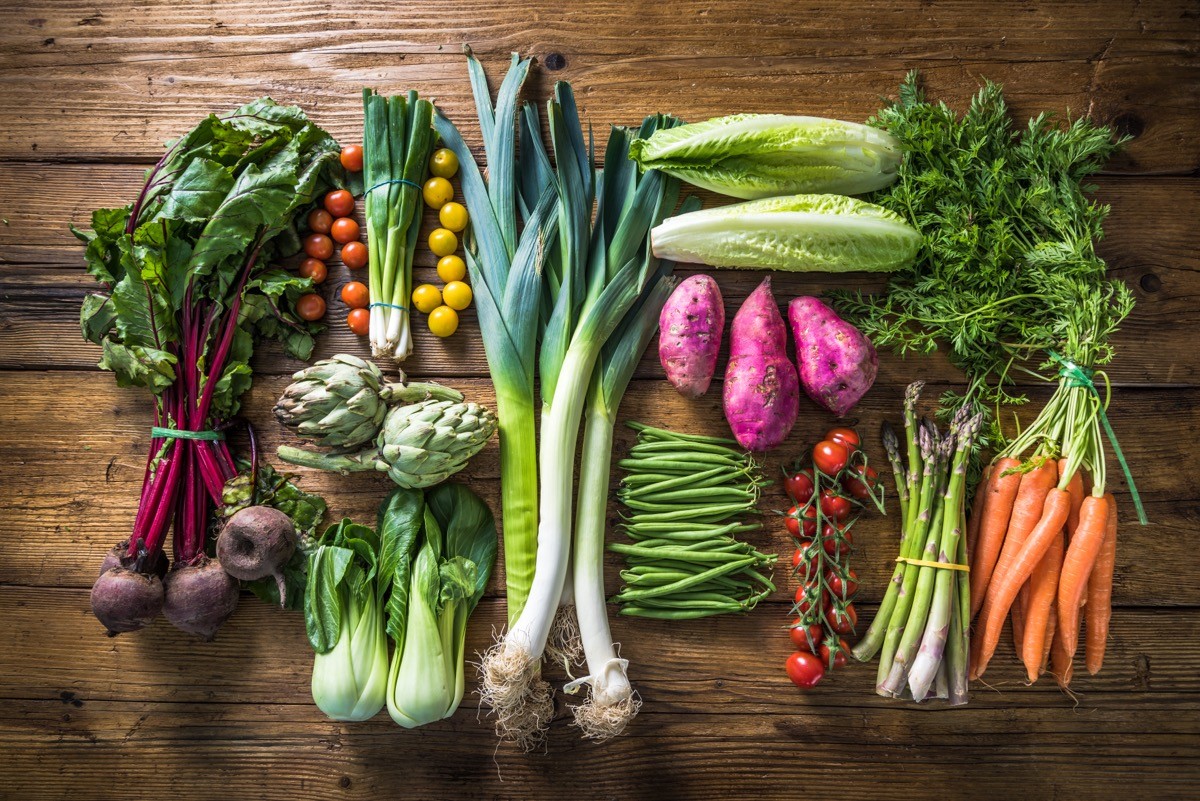
Yes, organic produce still needs to be washed. “Toxin exposure is less of an issue with organic fruit and veg, but produce is still handled and exposed to other potential contaminants so it’s best to wash everything before eating,” nutritionist Jessica Shand tells Vogue UK. “This includes bagged salads too. The salad could be washed with an array of toxic chemicals by manufacturers, including chlorine and bleach, so washing off this chemical residue is essential and quick to do.”
3
Not Cleaning Your Counters
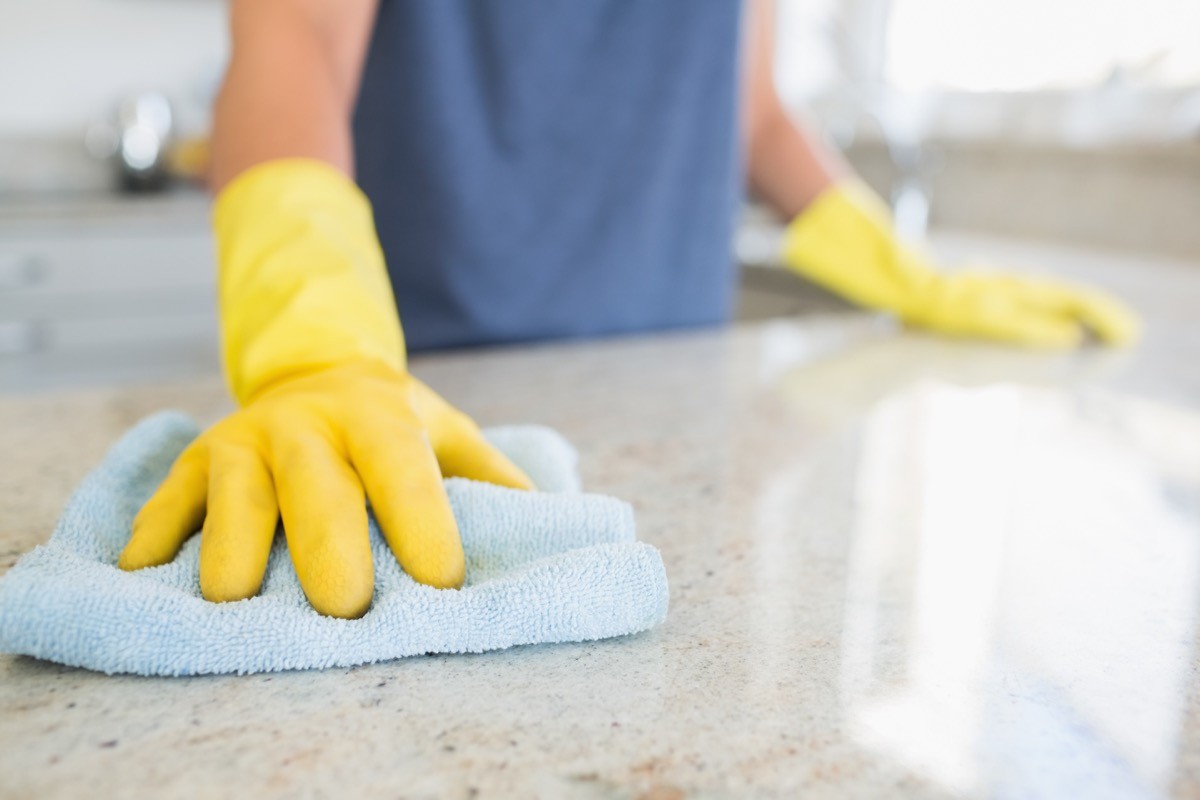
Make sure your kitchen area is clean before washing produce. “Make sure your inner sink, countertops and utensils are cleaned and sanitized before you rinse your produce to avoid cross-contamination, especially from surfaces that have touched raw meat, poultry or seafood or their juices,” says the USDA. “When preparing fruits and vegetables, cut away any damaged or bruised areas because bacteria that can cause illness can thrive in those places. Immediately refrigerate any cut items such as salad or cut fruit for best quality and food safety.”
4
Not Washing Your Hands
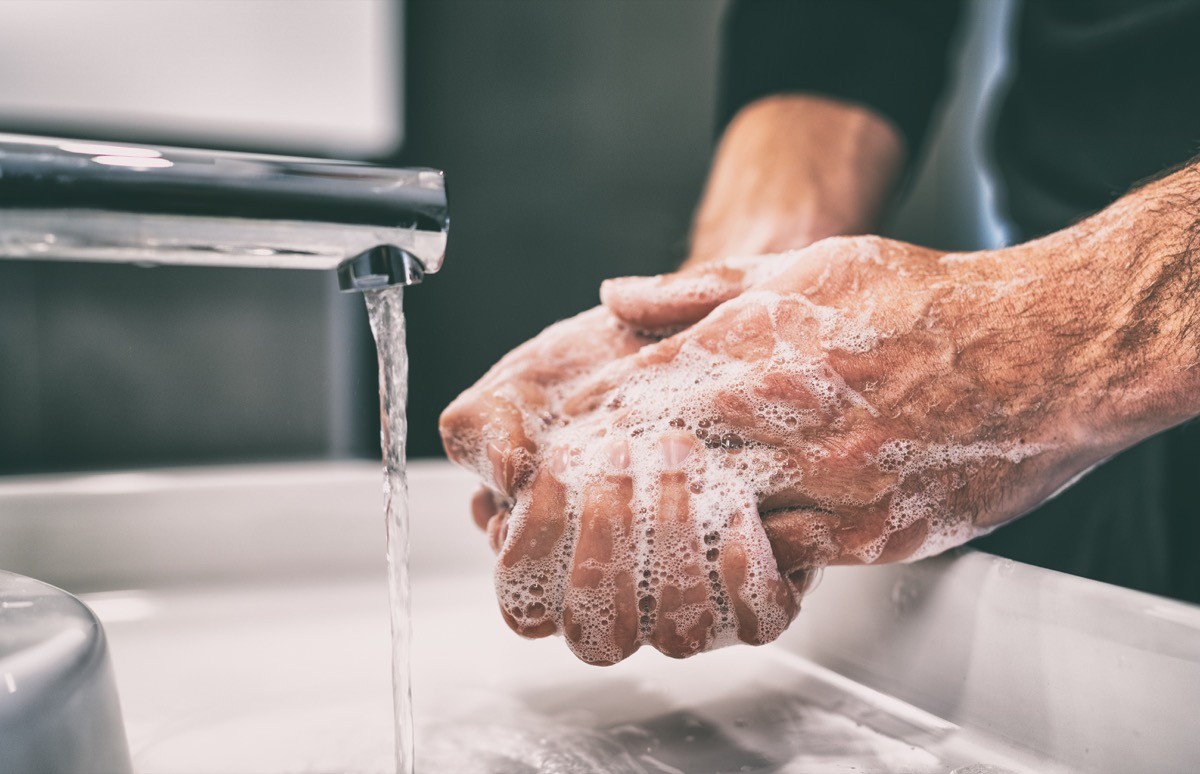
Thoroughly wash your hands before and after cleaning your produce, especially if you’ve been touching raw meat. “Hand washing after handling raw meat or poultry or its packaging is a necessity because anything you touch afterwards could become contaminated. In other words, you could become ill by picking up a piece of fruit and eating it after handling raw meat or poultry without properly washing your hands,” according to the USDA. “Always wash hands before and after handling food; before eating; and after using the bathroom, changing diapers, tending to a sick person, blowing your nose, sneezing, coughing and handling pets.”
RELATED: The Best Hack for Keeping Produce Fresher Longer.
5
Using Soap or Bleach
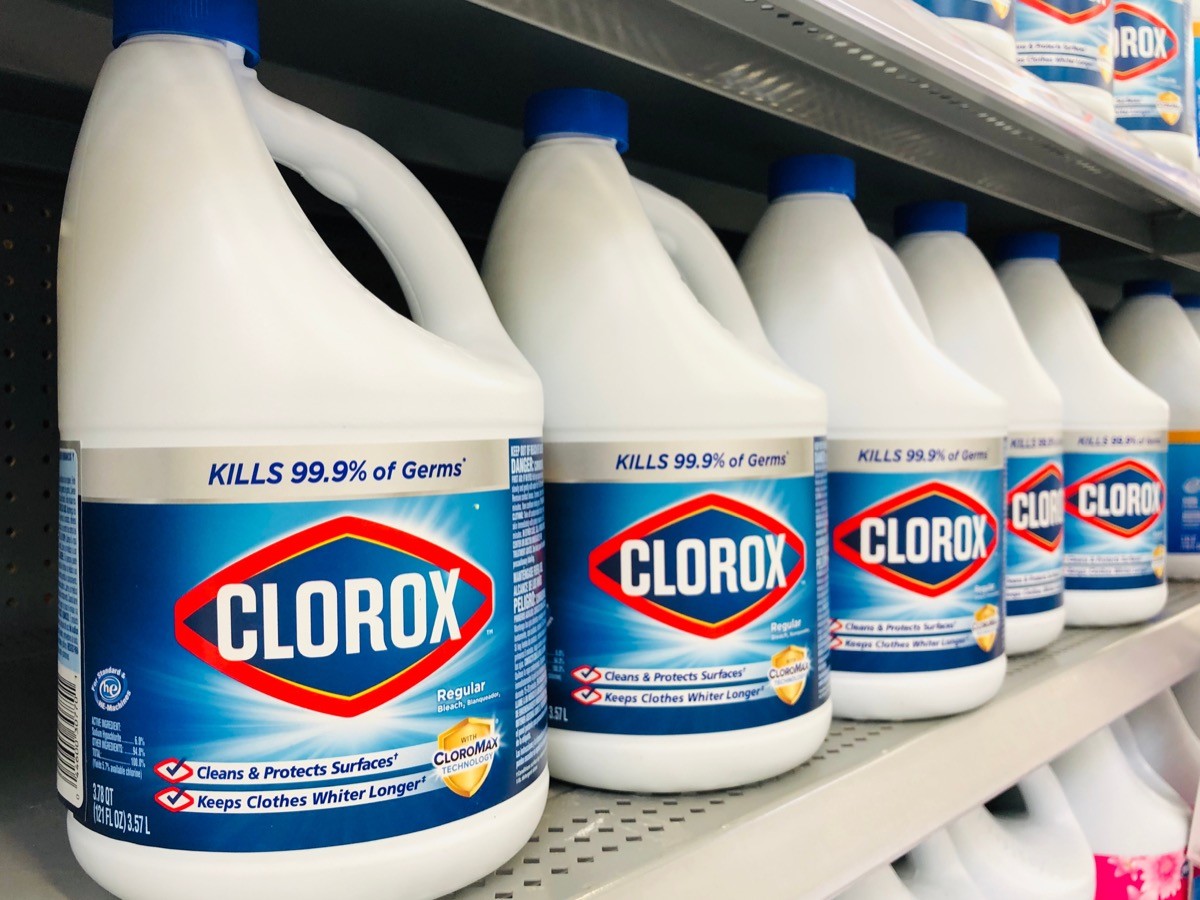
Enough people must be doing this if it needs to be said—but do not use soap or bleach to clean your produce! “Washing fruits and vegetables with soap, detergent, or commercial produce wash is not recommended,” says the FDA. “Produce is porous. Soap and household detergents can be absorbed by fruits and vegetables, despite thorough rinsing, and can make you sick. Also, the safety of the residues of commercial produce washes is not known and their effectiveness has not been tested.”
6
Not Washing Produce With a Rind
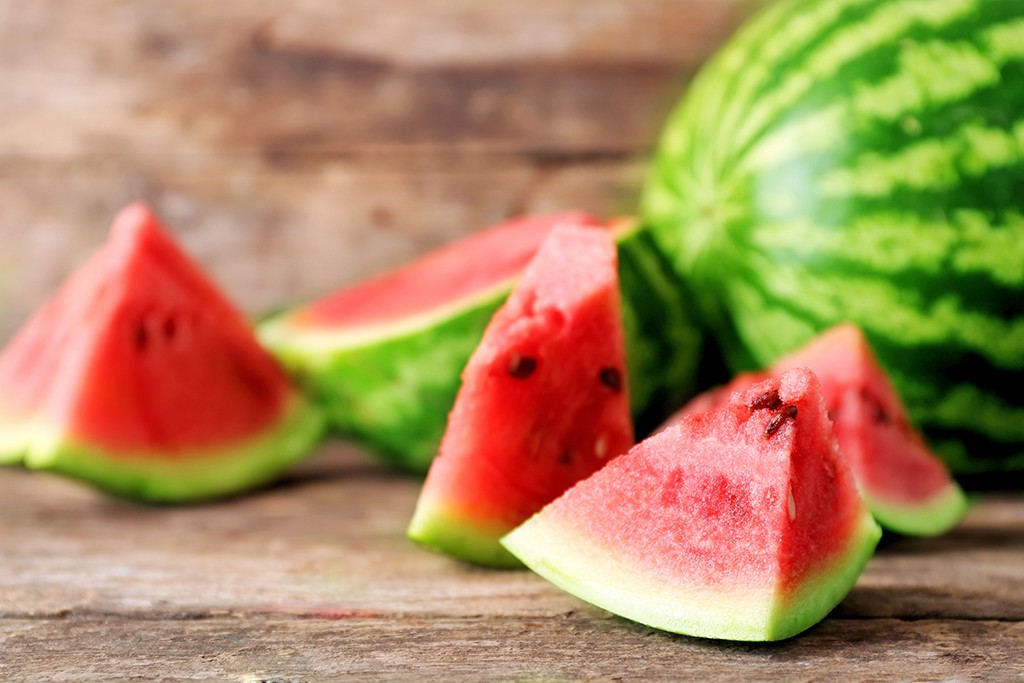
Yes, it’s important to wash fruit and vegetables even if it has a hard rind. “It’s really important that you wash them ahead of time because for example, if you are cutting up a melon, it’s got a hard rind and you’re not necessarily going to eat that, but if there is bacteria or pesticides on the outside of that rind, it’s going to get transferred into the flesh of that fruit through that knife,” Beth Czerwony, RD, tells the Cleveland Clinic.
7
Cold Water and a Brush
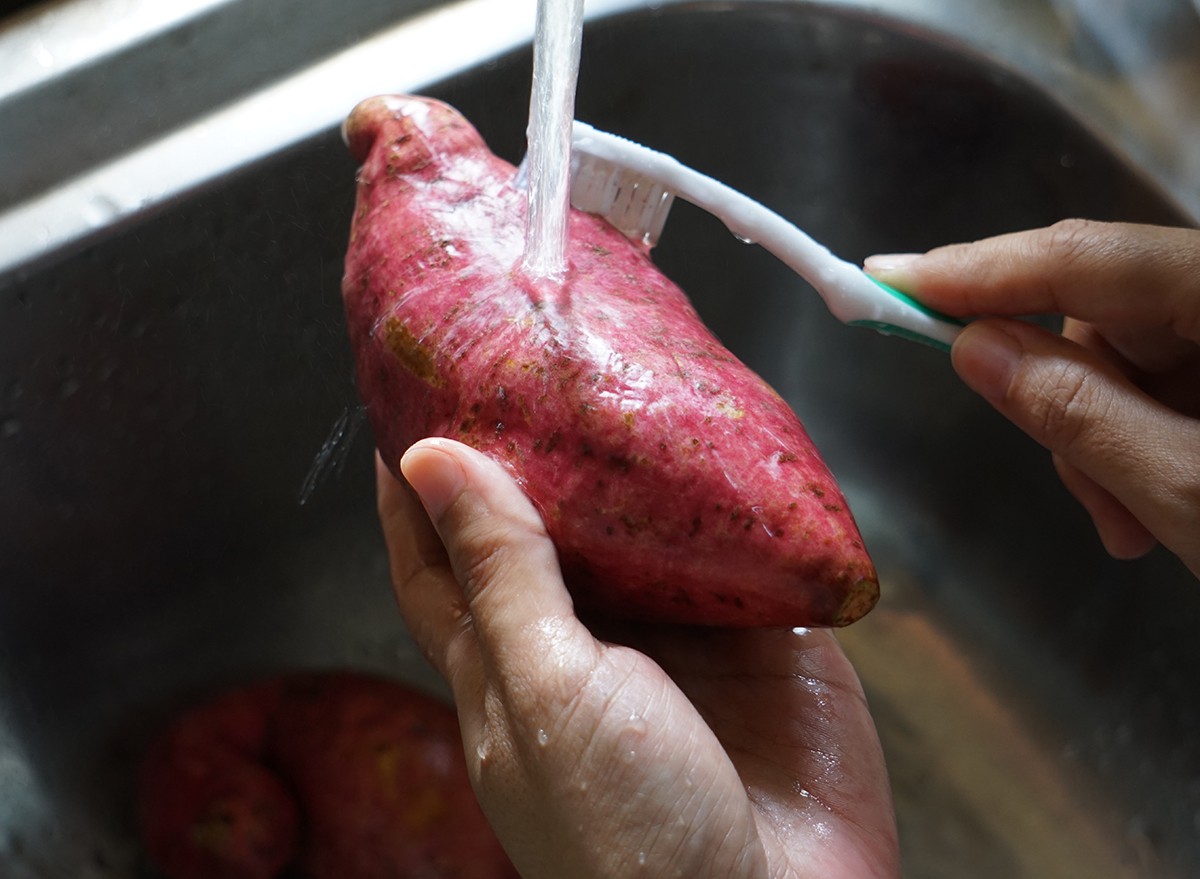
The best way to clean your produce is with cold, clean water and a scrubby brush. “There are other options and theories out there, but truly the best option is just simply washing [produce] under cold water,” Galloway says. What about baking powder and vinegar? “When you look at the research, when people use baking soda, it does reduce the bacteria a little bit more,” she says, noting that using both can cause produce to spoil faster and impact taste. “I think as a dietitian, overall, the point of view is, most Americans don’t get the recommended [amount of] fruits and vegetables. So let’s make it simpler. Really what’s going to make the massive [positive] impact on your health is increasing your servings of fruits and vegetables.”